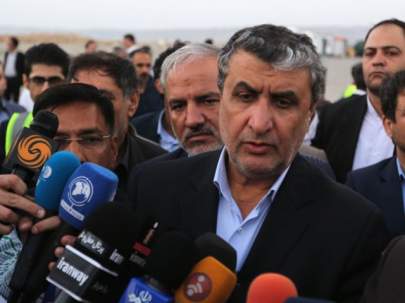Iran All in for China’s ‘Belt and Road’ Global Commerce Push

Tehran has signed on for China’s global Belt and Road Initiative (BRI) infrastructure project, Iran Minister of Roads and Urban Development Mohammad Eslami declared Monday.
Eslami said the BRI developed by China includes “major information technology plans” that are projected to be worth billions of dollars to the country, Tasnim News Agency reports.
In February, Iranian Foreign Minister Mohammad Javad Zarif hailed the close cooperation between Tehran and Beijing as a “win-win interaction,” saying such strategic relations help both countries expand their global footprint.
In an article written for The People’s Daily on the 50th anniversary of the establishment of diplomatic ties between Iran and China, Zarif expressed hope Iran would play a greater role in the BRI, as part of Tehran’s push for a global infrastructure development strategy to link Asia, Europe and beyond.
This is not the first time a move by the Chinese Communist Party into the Middle East has been flagged as it seeks to increase its global presence.
As Breitbart News reported, Chinese state media in March used the blockage of the Suez Canal to propose trade routes across land established by the BRI as an alternative to maritime shipping.
“Despite the logjam in the Suez Canal caused by a massive container ship that got stuck in the key waterway, traders in China have seen a limited impact on their operations, with many turning to more reliable alternatives such as China-Europe freight train service to take much-needed goods from factories in China to the European market,” China’s state-run Global Times boasted.
The article quoted “industry insiders” who said demand for long-distance rail service between China and Europe saw a “surge in demand, with shipping rates rising by 10-20 percent in some cases,” because “clients are seeking stable and safe options to secure their deals.”
China’s BRI began life in 2013 as the One Belt One Road initiative, with the goal of building a vast network of trade routes across the globe.
China has been involved with hundreds of projects under the BRI, ranging from hydroelectricity projects in Uganda to rail links in Malaysia.
Photo: ATTA KENARE/AFP via Getty
Link: https://www.breitbart.com/middle-east/2021/05/03/iran-all-in-for-chinas-belt-and-road-global-commerce-push/




